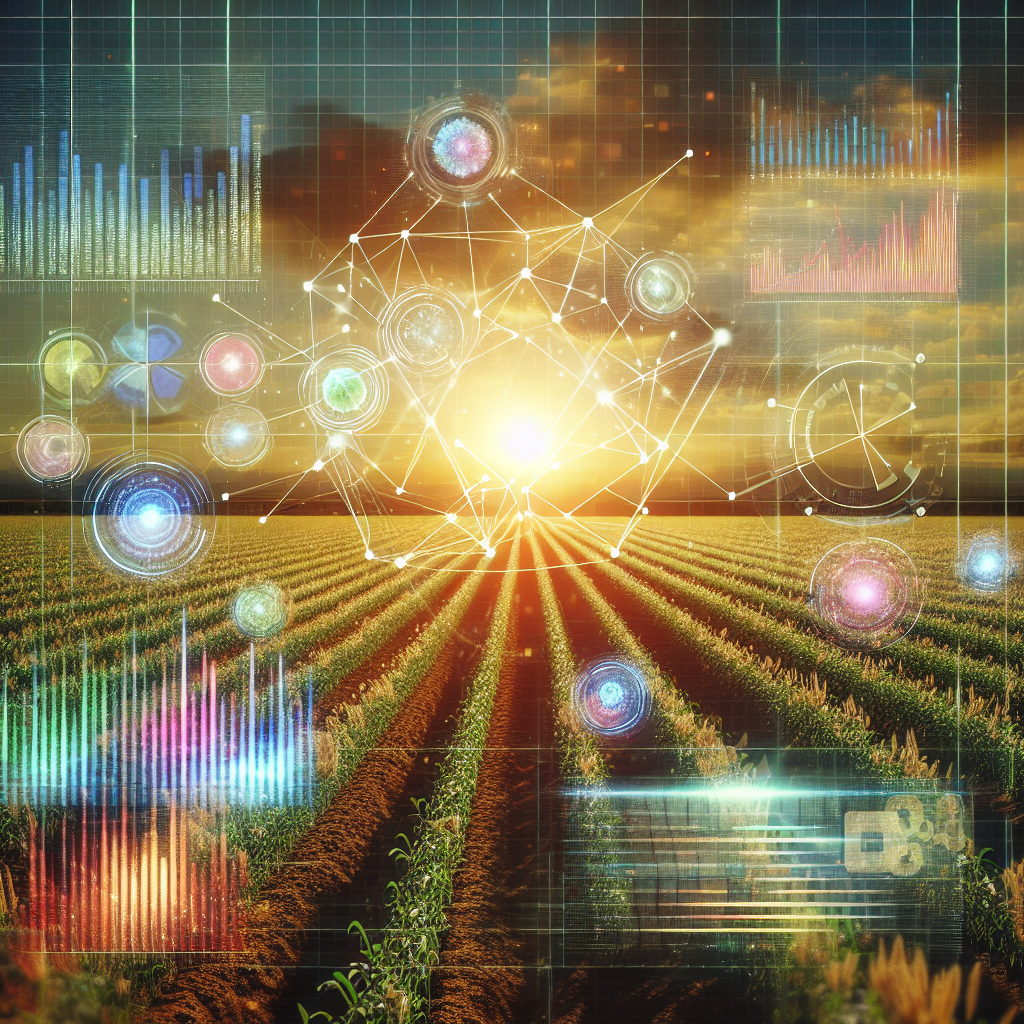Advancements in AI for Crop Yield Prediction
Introduction
The agriculture industry has seen significant advancements in recent years, with the integration of artificial intelligence (AI) technologies playing a key role in improving crop yield prediction. AI algorithms can analyze large amounts of data, such as weather patterns, soil quality, and crop health, to provide accurate predictions on crop yields. This technology has the potential to revolutionize the way farmers make decisions, leading to increased productivity and sustainability in agriculture.
Benefits of AI for Crop Yield Prediction
There are several benefits of using AI for crop yield prediction. Some of the key advantages include:
1. Improved accuracy: AI algorithms are able to process vast amounts of data and identify patterns that may not be visible to the human eye. This leads to more accurate predictions on crop yields, helping farmers make informed decisions on when to plant, fertilize, and harvest their crops.
2. Increased productivity: By providing farmers with accurate predictions on crop yields, AI technology can help optimize farming practices and maximize productivity. This can lead to higher crop yields and increased profits for farmers.
3. Sustainability: AI can help farmers optimize their use of resources, such as water and fertilizers, leading to more sustainable farming practices. By reducing waste and improving efficiency, AI technology can help farmers minimize their environmental impact and contribute to a more sustainable food system.
4. Cost-effective: AI technology can help farmers save time and money by providing them with valuable insights on crop yields and optimal farming practices. This can lead to cost savings and increased profitability for farmers.
5. Scalability: AI technology can be easily scaled to accommodate large farms and complex agricultural systems. This makes it an ideal solution for farmers looking to increase their productivity and efficiency.
Recent advancements in AI for Crop Yield Prediction
There have been several recent advancements in AI technology for crop yield prediction. Some of the key developments include:
1. Machine learning algorithms: Machine learning algorithms, such as neural networks and support vector machines, have been used to analyze large datasets and make accurate predictions on crop yields. These algorithms can learn from past data and adapt to changing conditions, leading to more accurate predictions over time.
2. Remote sensing technology: Remote sensing technology, such as drones and satellites, can collect valuable data on crop health, soil quality, and weather patterns. This data can be analyzed using AI algorithms to provide farmers with real-time insights on crop yields and potential risks.
3. IoT sensors: Internet of Things (IoT) sensors can be used to collect data on various aspects of farming, such as soil moisture levels, temperature, and humidity. This data can be integrated with AI algorithms to provide farmers with real-time information on crop yields and help them make informed decisions on farming practices.
4. Deep learning: Deep learning algorithms, such as convolutional neural networks, have been used to analyze complex datasets and make accurate predictions on crop yields. These algorithms can identify subtle patterns in data that may not be visible to traditional machine learning algorithms, leading to more accurate predictions.
FAQs
Q: How accurate are AI predictions on crop yields?
A: AI predictions on crop yields can be highly accurate, especially when using advanced machine learning algorithms and integrating data from multiple sources. However, the accuracy of predictions may vary depending on the quality of data and the complexity of the agricultural system.
Q: Can AI technology be used for all types of crops?
A: AI technology can be used for a wide range of crops, including grains, fruits, vegetables, and nuts. The technology can be tailored to specific crops and farming practices to provide accurate predictions on crop yields.
Q: How can farmers integrate AI technology into their farming practices?
A: Farmers can integrate AI technology into their farming practices by collecting data on various aspects of farming, such as weather patterns, soil quality, and crop health. This data can be analyzed using AI algorithms to provide farmers with insights on crop yields and optimal farming practices.
Q: What are the potential challenges of using AI for crop yield prediction?
A: Some potential challenges of using AI for crop yield prediction include the need for high-quality data, the complexity of agricultural systems, and the cost of implementing AI technology. Farmers may also need to invest in training and resources to effectively use AI technology in their farming practices.
Conclusion
Advancements in AI technology have the potential to revolutionize crop yield prediction and improve productivity and sustainability in agriculture. By leveraging machine learning algorithms, remote sensing technology, IoT sensors, and deep learning, farmers can make informed decisions on when to plant, fertilize, and harvest their crops. With the ability to provide accurate predictions on crop yields, AI technology can help farmers optimize their farming practices, increase productivity, and contribute to a more sustainable food system.

